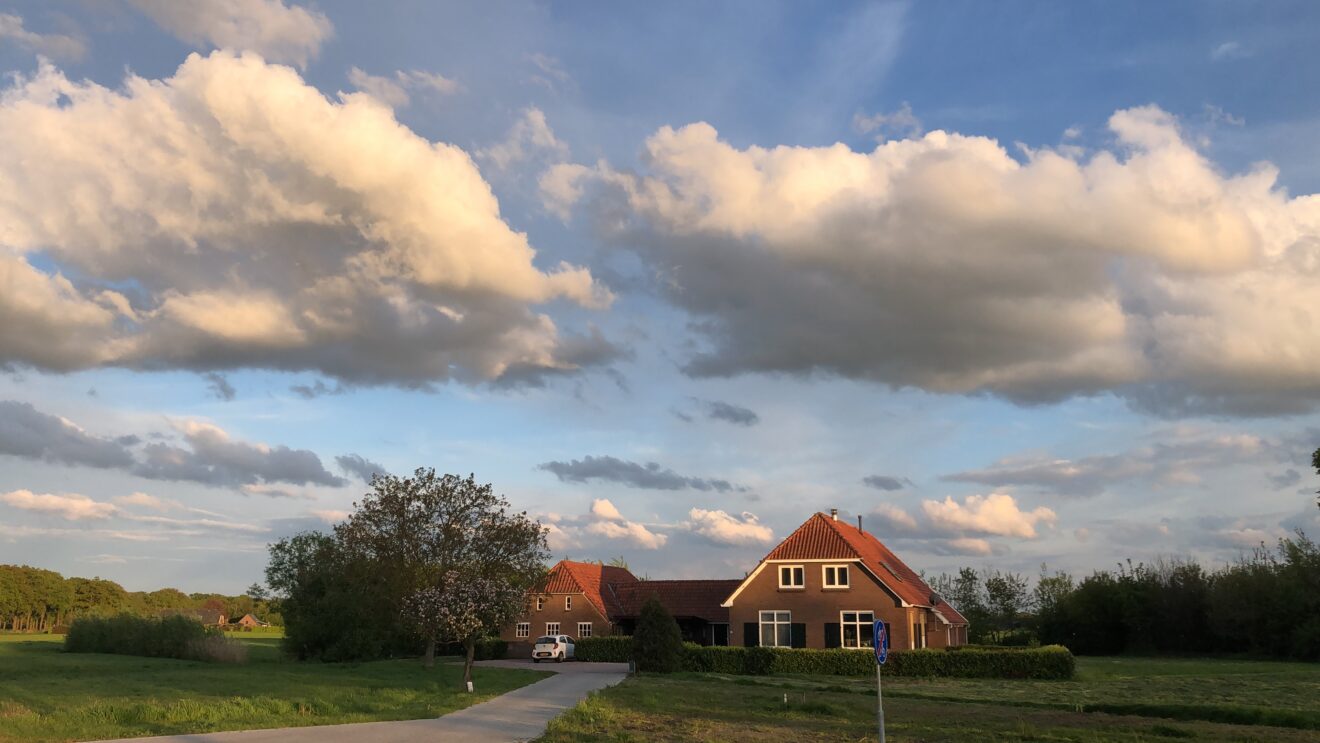The Book of Yourself Newsletter
Issue 29: April 2024
|

|
It is an odd but seemingly normal phenomenon that periodically humanity finds itself on the brink of a major crisis or conflagration. Maybe we are always in it, but we go through periods in which the latent conflicts lie dormant and we are momentarily lulled to sleep in the belief that at last we live in peace. The dream of peace is as constant as the preparations for war. The good old adage that si vis pacem, para bellum, seems to be as relevant today as it was in Roman times. Which suggests that our age is as barbarous as theirs was. The fact is that the new wave of violence is casting a pall of fear over our consciousness and endarkening the future of humanity. History is a treadmill of repeating man-made catastrophes. The political leaders and the army generals seem to be at ease with all the killing in the ongoing wars and talk rather blithely about the prospect of a wider conflict, assuming its inevitability and announcing openly the use of atomic weapons should it come to it. Rather perversely, they seem to relish, together with the Evangelical tribe, the idea of an apocalyptic culmination to the perennial struggle between the forces of good and evil. What they don’t seem to realize is that the very struggle itself is evil and what they are advocating and inching towards with such patriotic zeal is the macabre expression of their ingrained violence and unconscious death wish.
|
I used to wonder as a kid what the obsession with the end of the world was about. In the Bible it bore the seal of divine authority and all kinds of sects adopted their own version of the Apocalypse and its horsemen. That the world will end is practically guaranteed by the fact that it began. Everything that comes into being passes away. In that sense, the ending of the world is not so much in the future as in every microsecond of the day. But in the Judaeo-Christian context it has both ethical and cosmic connotations, for that ending is seen as the divine retribution for our inveterate moral degeneracy. That’s how they reported the events in the Babylonian legend of the Deluge. My mother told me that while that first cleansing was by water, the next would be by fire. God knows there is plenty of contemporary evidence of all the abominations in the book to warrant another mass extinction, except that now we don’t even need God to explain or execute it, for we are doing it all ourselves. And to judge by the phenomenon of global warming and the sweltering temperatures in the Lowlands in this second week of May, we seem to be well on our way to fulfilling our own prophesies.
|
A prophesy is a prediction concerning the future, which in our time is the task of science rather than of inspired visionaries. Phenomenally speaking, such predictions are causal and deterministic, e.g., if we keep producing greenhouse gasses, global temperatures will rise; if we keep dividing ourselves politically, religiously, ideologically, etc., war will continue. While some people despair, thinking, for example, that we have crossed the point of no-return concerning climate change, others are tactically optimistic on the basis that since these disasters are the result of our actions, and invoking the general principle that where there is a cause there is an ending of that cause, we still have it in our hands to alter the course of the future. Do we? And if so, what might be involved in that change, not just outwardly but inwardly, not only in our actions and values but in the very operation and structure of consciousness?
|
When K and Bohm discussed this issue in 1983, they started by saying that the future is now, and therefore not a question of evolution and time. If the future is now, then, in a sense, there is no future, there is only the now. In this context, however, it means that unless there is a break in the chain of causation, the future will be a modified continuity of the present, which is itself the modified continuity of the past. The causation is our conditioning. The world is what it is because thinking makes it so and the transformation we need is to break with this generational continuity. For K, the fundamental factor of fragmentation, violence and sorrow in human existence is the persistence of memory as psychological time, as identity. It may sound paradoxical, but the implication is that for humanity to have a future, it must die to psychological time. In other words, that to have a future we must live without a past.
|
It all hinges on understanding the nature of consciousness. Consciousness is the field of the known and thought is its active response. Knowledge, being the past, is always limited and so are thought and consciousness, which means that they respond inadequately to the challenges of living and thus create confusion and disorder. One could argue that this limitation can always be overcome by new advances in knowledge. The point, however, is that knowledge is always incomplete. The limitation of thought is thus not just a matter of the amount of available information but inherent to it. In which case we just have to accept it and live with it. The issue, however, is that, as borne out by the destructive consequences it is having in the world, it is a most dangerous thing. If the present is the measure of the future, then that future is not very promising because thought, as the reflex response of memory, can only repeat. It would seem that to break out of this vicious circle we would need to step out of the stream of consciousness and thought as we know them.
|
|

|
Altering the course of the future concerns the question of disorder. One of the factors of disorder in the world is our mistaken approach to security. We need security, but we seek it by identifying with different territorial, racial, ideological and confessional groups, creating division and breeding conflict and suffering. Such divisions are based on a dangerous illusion. K never tired of saying that consciousness is not an individual entity but the common ground of all humanity, that we are the world and the world is us. We are conditioned to think we are separate from the moment the me and the mine develop in childhood, which is then reinforced by the social environment. While we have made significant advances in the cultural, scientific and technical fields, our remarkable achievements have not altered this psychological structure in any essential way. Technology is a tool at the service of the psyche and if the psyche is not in order, the more we progress technologically, the more dangerous the whole thing becomes.
|
K tends to attribute the whole mess to the fragmentary nature of thought and, more specifically, to its cultivation of psychological time. He defines psychological time as the movement of thought as becoming between the opposites of what is and what should be. He usually gives the example of being violent and seeking to become nonviolent, which is clearly an important issue for the whole of mankind. He points out that the only fact is violence, and that nonviolence is a fictional ideal, so that becoming nonviolent is an illusory process. The observer separates himself from his quality and then tries to overcome it. This duality of the observer is a source of conflict, which is another form of violence. The observer is a memory perceiving another memory, so the observer is the observed. The dissolution of this duality is for K the transformative action of intelligence.
|
The dualistic process of psychological time implies conflict and suffering. Suffering arises from identification and attachment, which is the essence of the self. It is popularly assumed that we learn from suffering, but the overwhelming evidence is that we don’t. Historically we have suffered immensely through war, but after all these thousands of years all we have learned is to improve our armaments in preparation for the next one. Suffering, like consciousness, is not individual but common to all humanity. Identifying suffering as yours and mine is an illusory division that is the cause of further violence and suffering. There is no Jewish suffering and Palestinian suffering. There is only the suffering resulting from the desperate pursuit of our exclusive tribal and individual survival. The tragedy is that we persist in our identification with the past and are no longer in touch with the living oneness of the present. Whereas we are one humanity. We are our brother’s keepers. Thought is the factor of division and that’s why it cannot solve the problems it has created. What we need is intelligence, a direct perception of what is, an insight into the complexities of our shared human conditioning.
|
Conditioning is necessary and useful in all kinds of practical applications, but psychologically it creates division and brings about conflict and suffering. The self is the movement of thought as becoming, which, as earlier suggested, is an illusory process. The insight that the self is an illusion is for K the key to a radical transformation of consciousness and the holistic foundation for a new and compassionate world. When there is insight, mind contacts matter and there is a mutation in the brain cells. Insight is direct perception without the noise of the past. This silence of the past is the natural outcome of being choicelessly aware of our conditioning from moment to moment. When the observer is the observed, duality ends, there is no conflict and no wastage of energy. This heightened state of energy is undivided attention in which there is the flash of insight that reveals and dispels the psychological content of consciousness. K says that when the self is not, there is beauty, space and silence and the intelligence born of compassion. This quality of timeless inner space and silence is what he calls meditation.
|
This perspective on the future of humanity may sound rather impractical and abstract. It does not propose any blueprints, political ideals, ethical codes or technological solutions. Rather, it draws our attention to the deeper psychological source of the problem. The problem is violence and suffering, which is the result of our divisive ways of thinking and relating to things, people and ideas, of our mistaken approach to security, of our investing our being in time, in the identification with the past. Time is our real enemy because all that separates us is a memory. Whereas we are one humanity sharing the same universal consciousness. So the issue of altering the course of the future implies a questioning of the very nature of thought, self and time as the factors of fragmentation that they are. It represents a very intimate challenge to our very identity, for as long as we identify with something we cease to be whole and to relate to the whole. That’s why if we are concerned with the future of humanity we need to be choicelessly aware of our conditioning so there is an insight into the illusory nature of our separateness. Then we might know peace, compassion and kindness.
|
Be well, amigos, and enjoy the resurgent beauty and wholeness of Spring,
|
Photos by J. Gómez Rodríguez: 1. Evening sky, De Have, Lelystad; 2. Farmland, Geesteren.
|
|
|
|
|
|
|
|
|